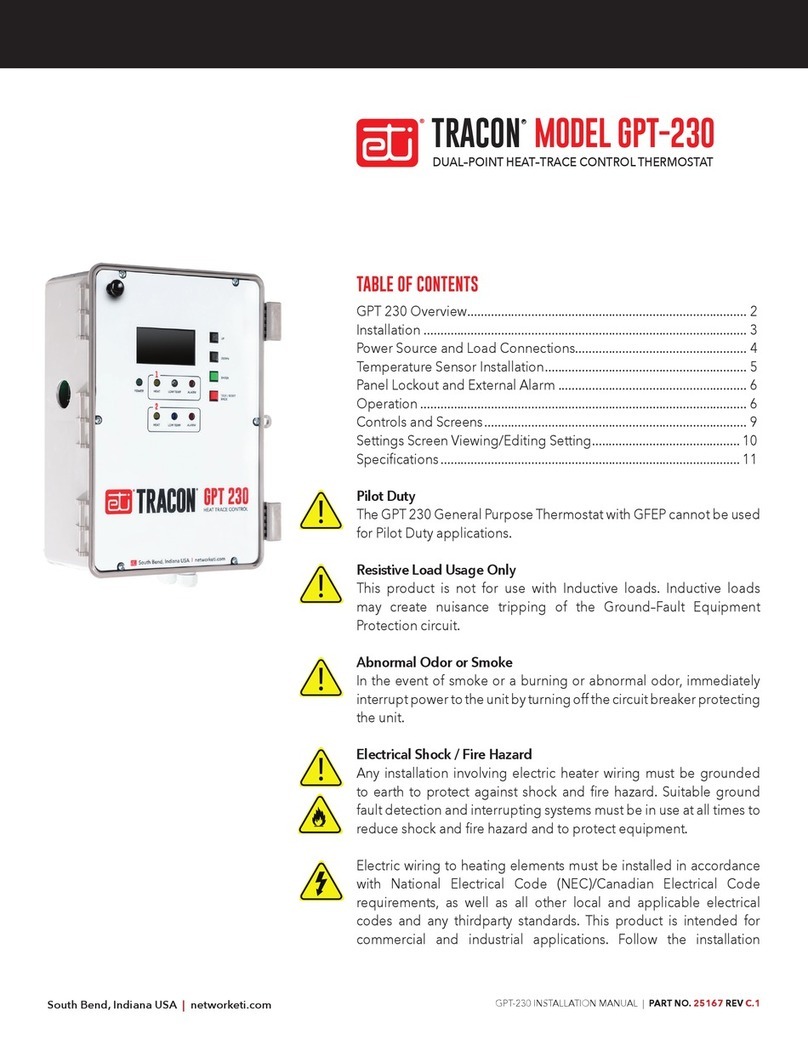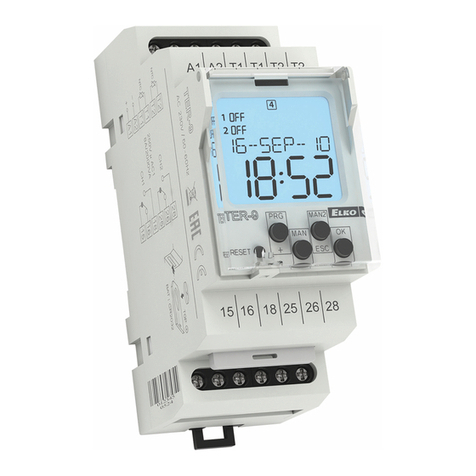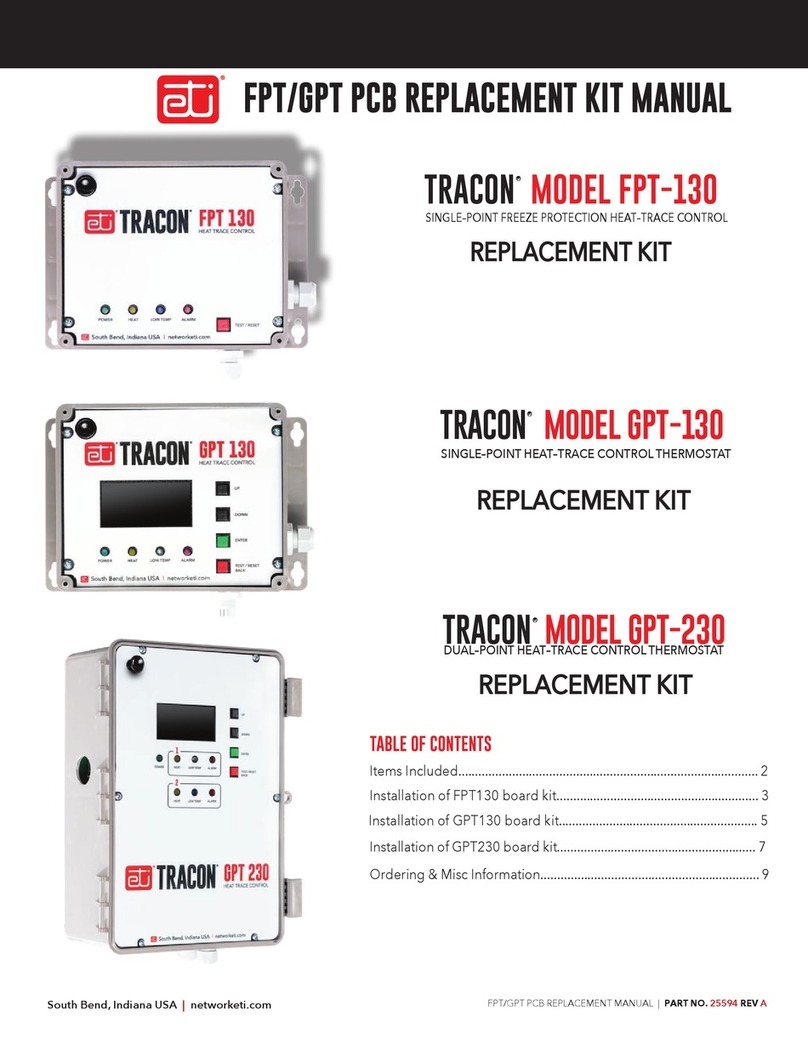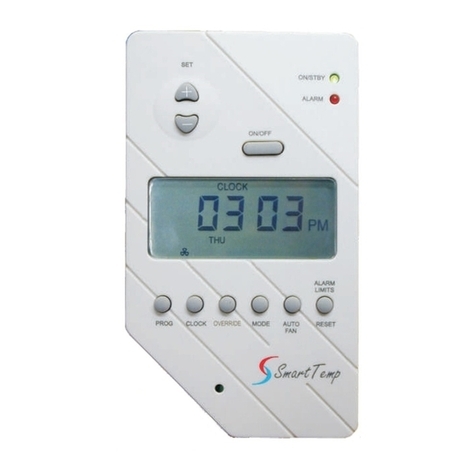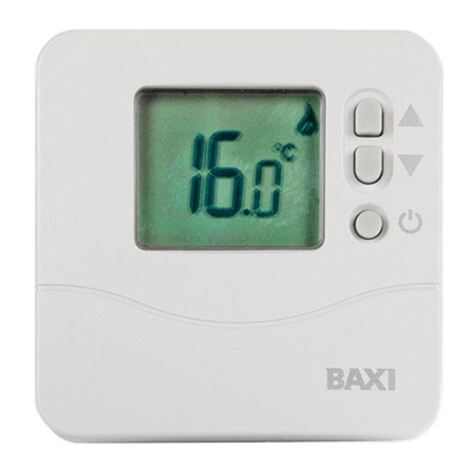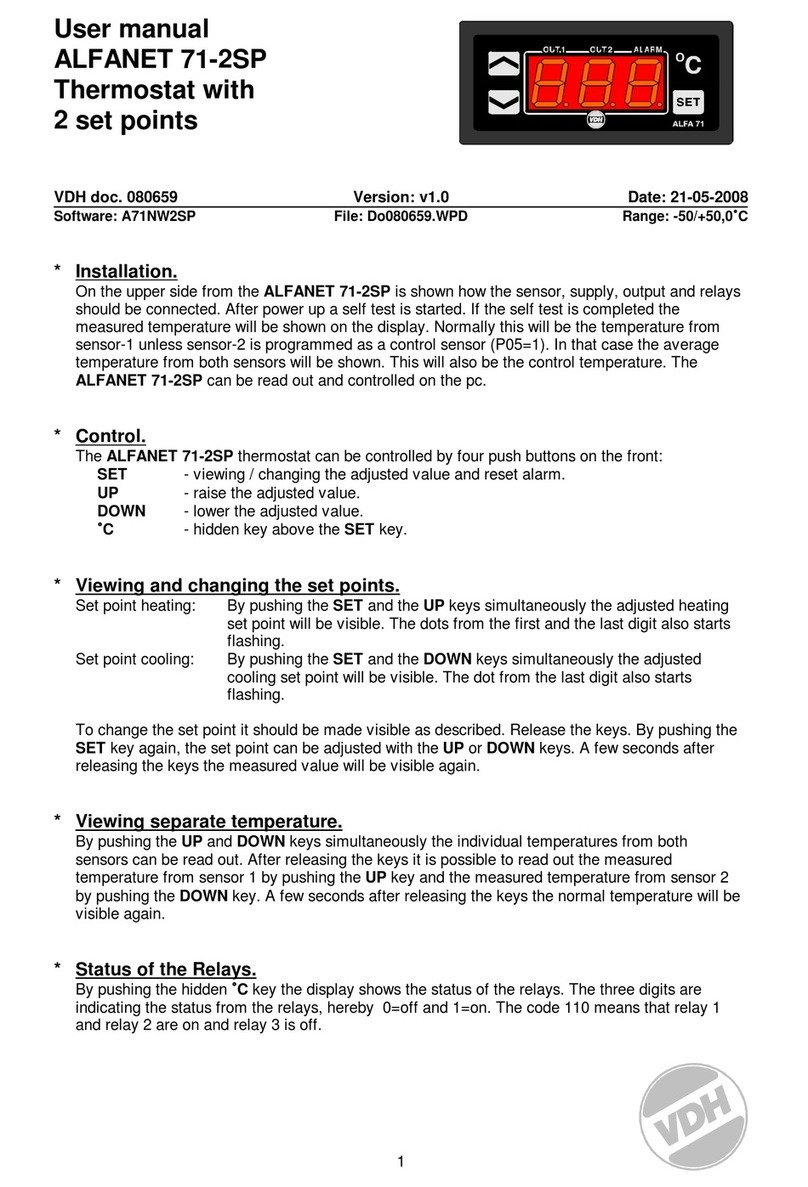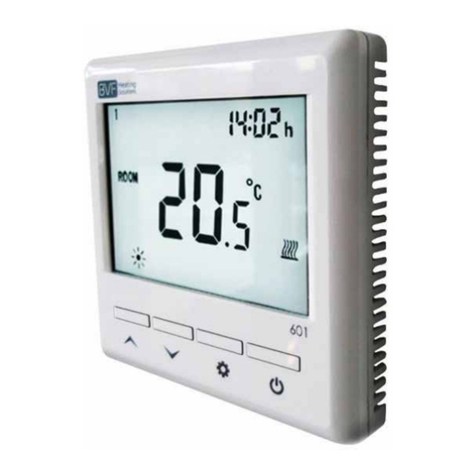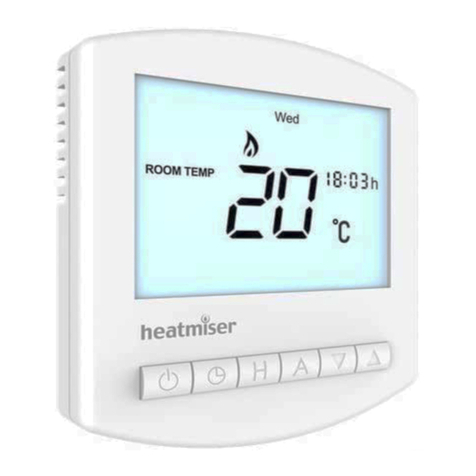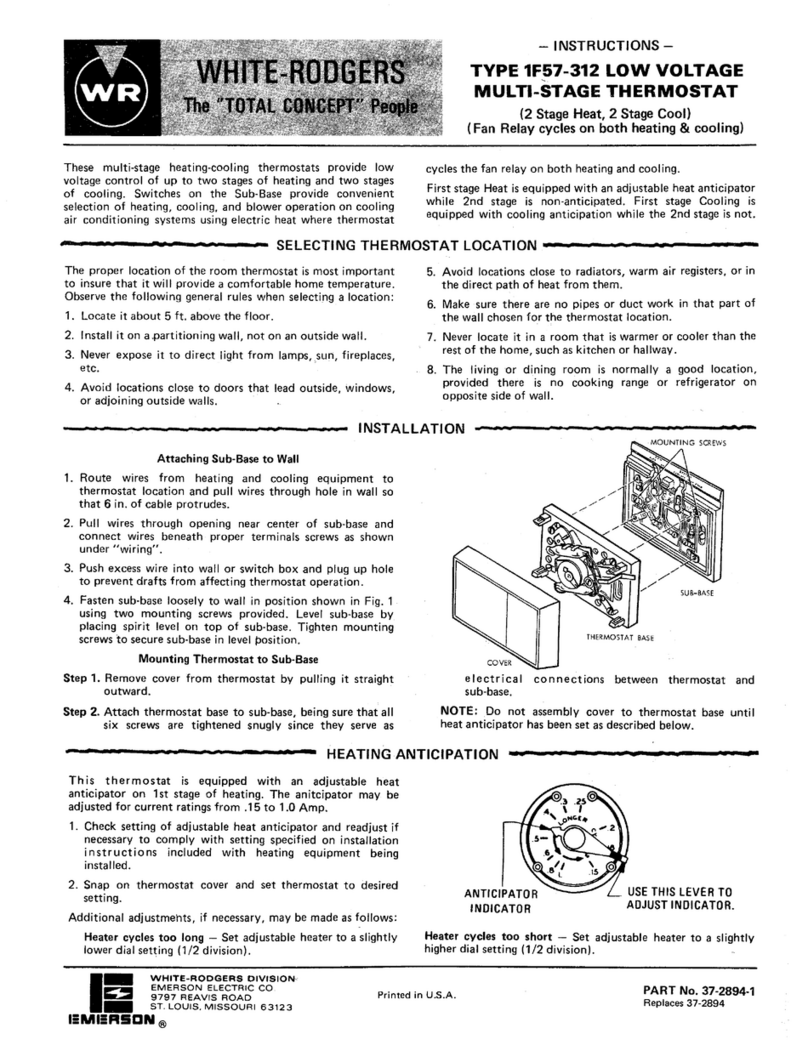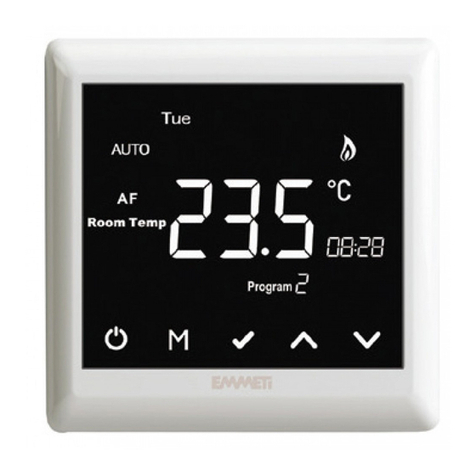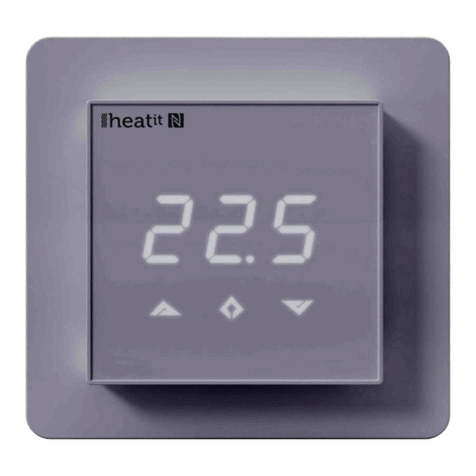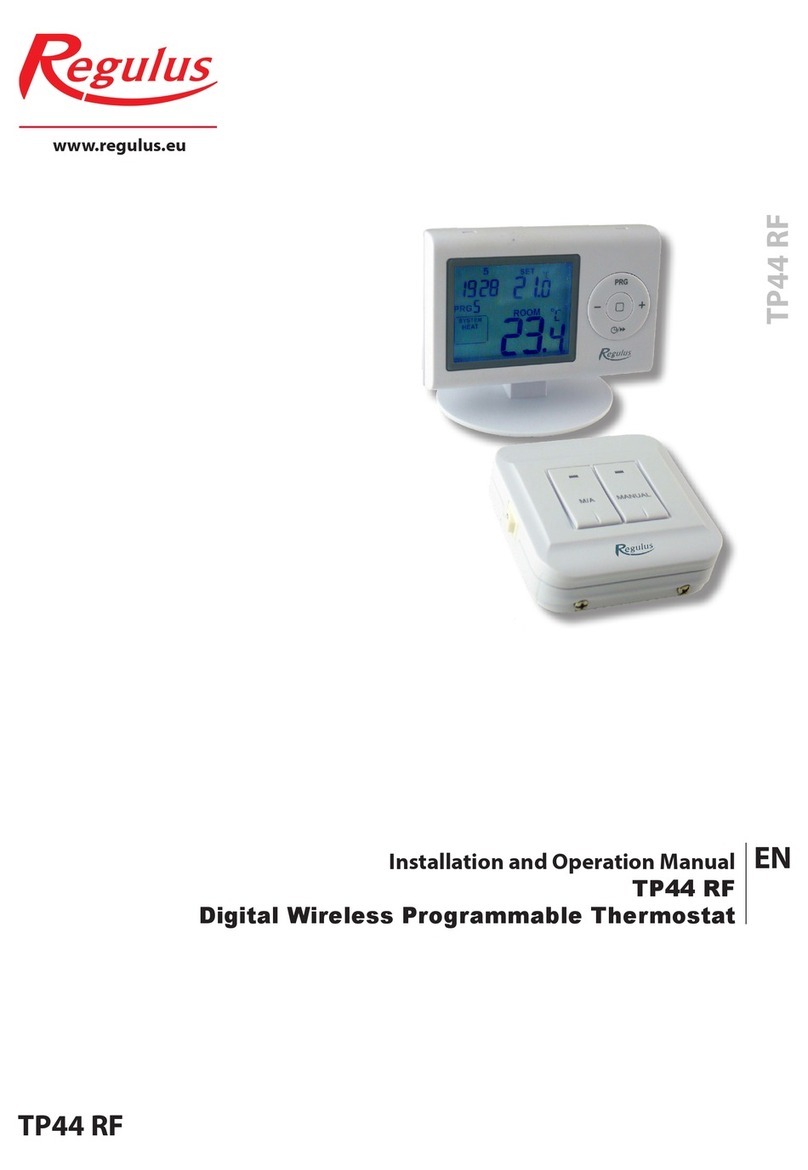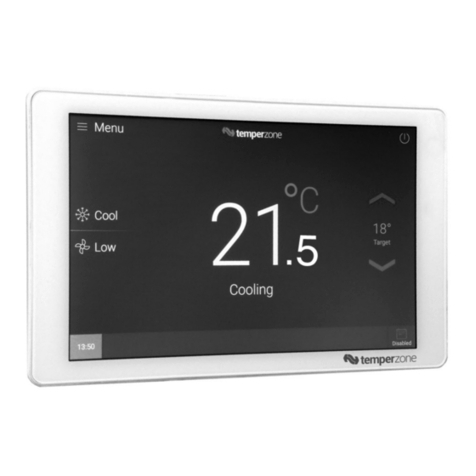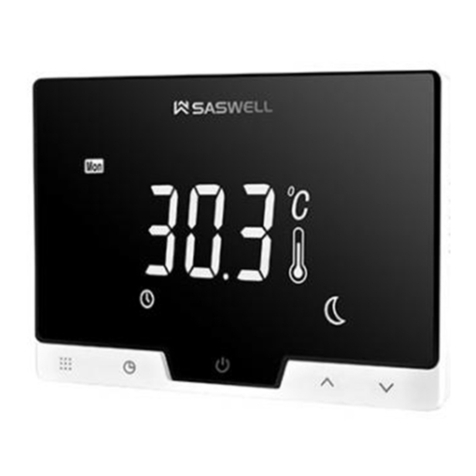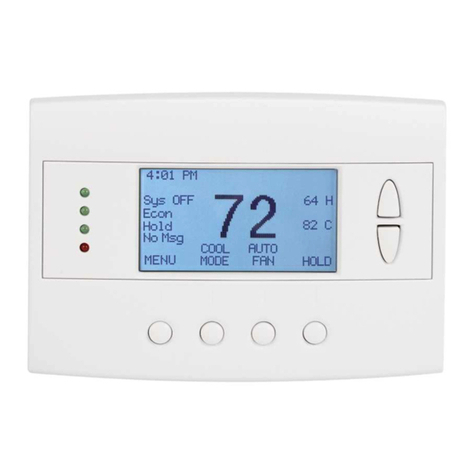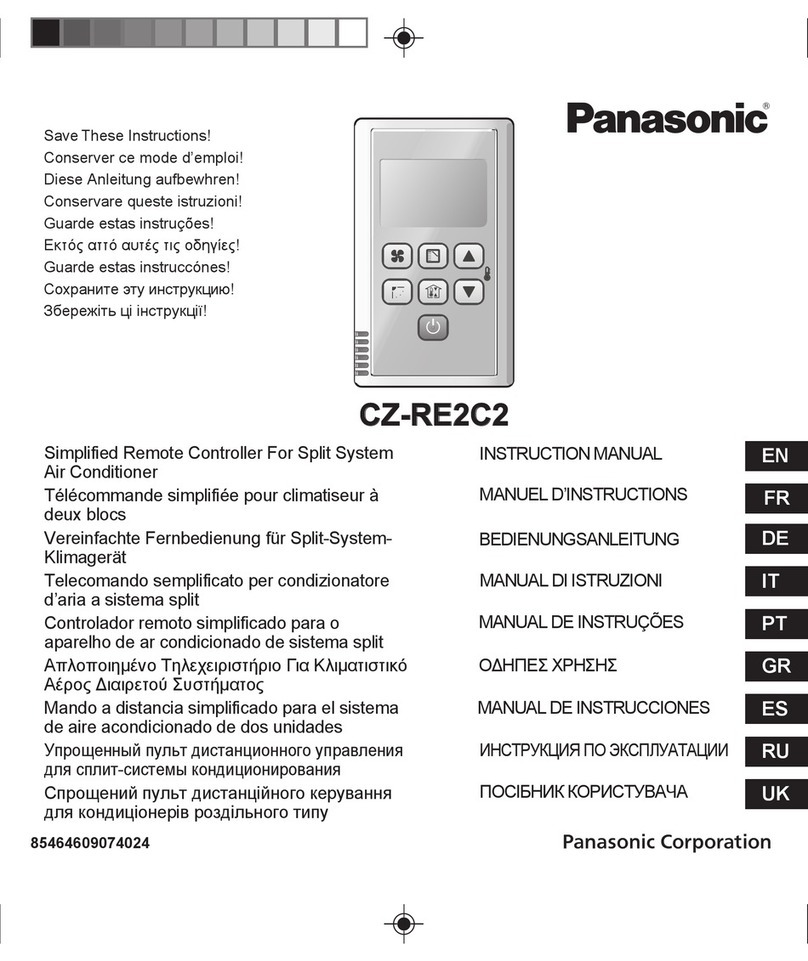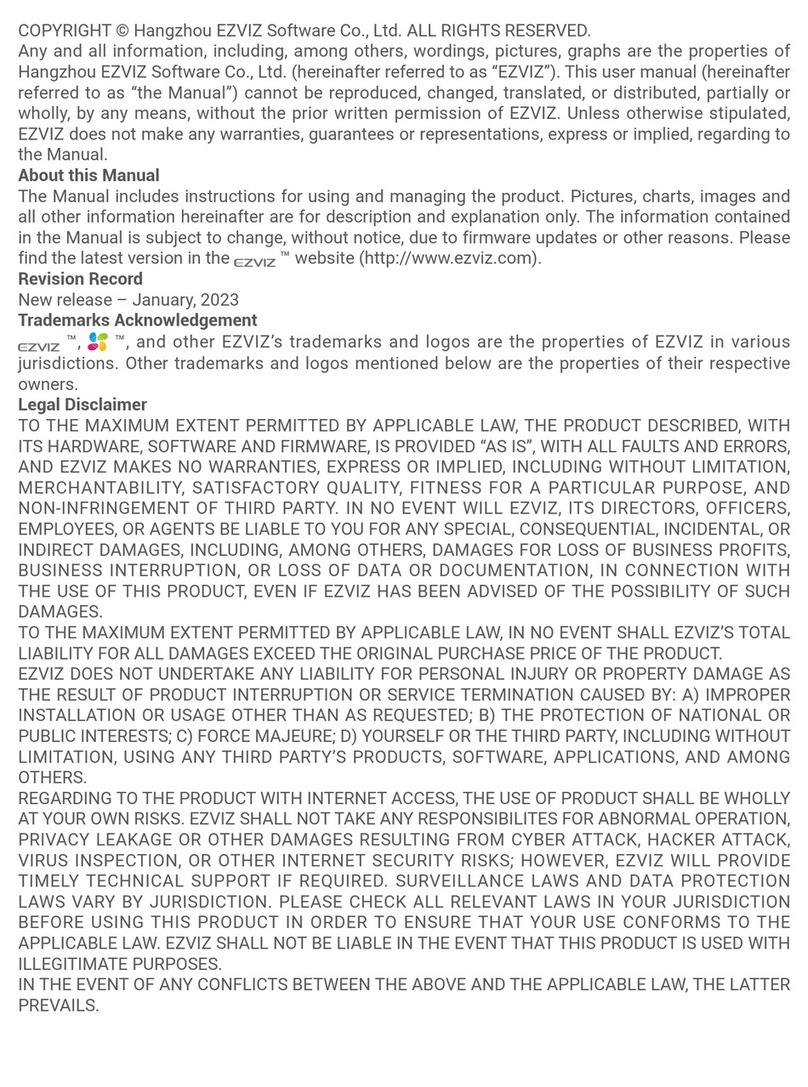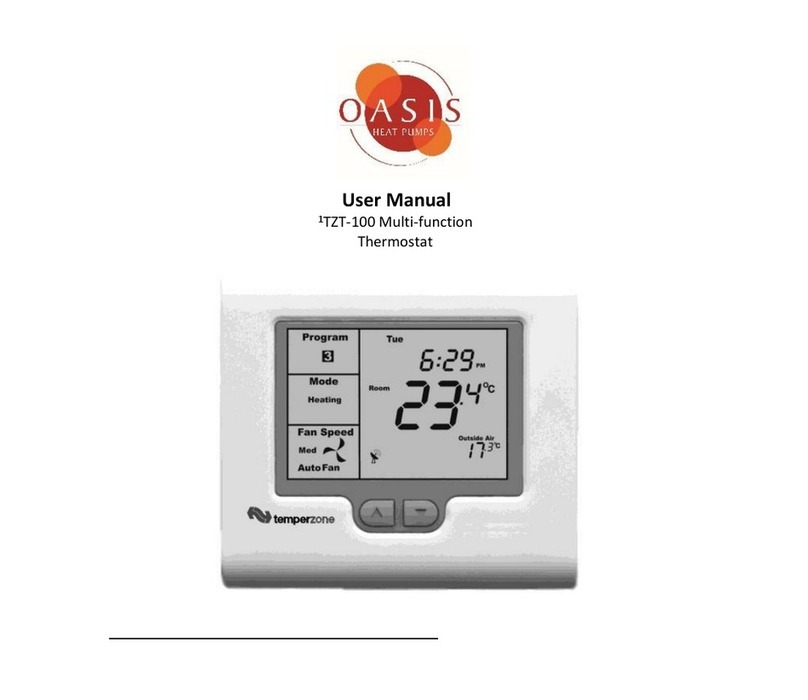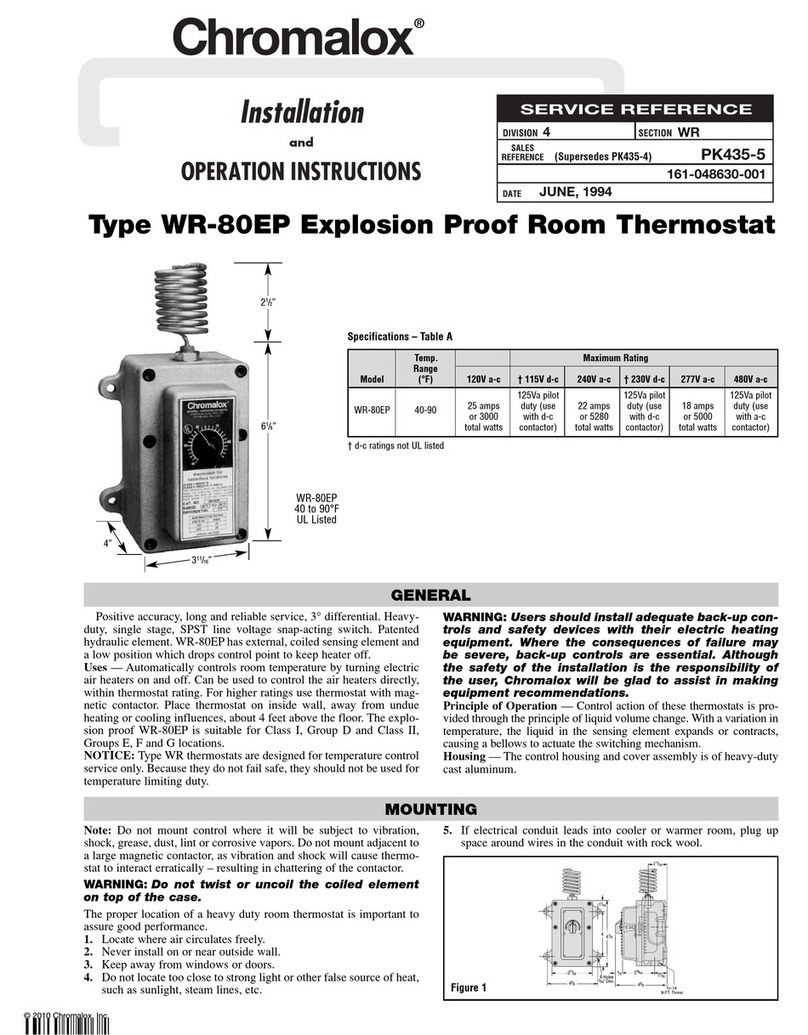ETI TRACON GPT-130 User manual

South Bend, Indiana USA | networketi.com GPT-130 INSTALLATION GUIDE | PART NO. 25299 REV B
PACKING LIST
QTY. PART NO. DESCRIPTION
1 25170 TRACON MODEL GPT 130 Single-Point General Purpose Heat–Trace Control
1 25076 Temperature Sensor
1 25299 GPT 130 Installation Sheet (this document)
1 25166 GPT 130 Installation and Operation Manual
MODEL GPT-130TRACON
®
SINGLE–POINT HEAT–TRACE CONTROL THERMOSTAT
PRIOR TO INSTALLATION
1. Read these installation instructions and manual prior
to beginning installation.
2. Install this device only if you are a qualied electrician
trained to perform such work.
3. Before beginning installation, lay out the system
components, the heat trace cable and the
temperature probe in their approximate locations to
visualize the system and evaluate exact component
and junction box placement, as well as required
cable and conduit lengths.
INSTALLATION
The GPT 130 Automatic Heat–Trace Control should be
installed by a qualied, licensed electrician. Installation
must conform to all applicable local and national electrical
codes and laws. The unit’s NEMA 4X IP66 enclosure allows
for indoor or outdoor applications.
The GPT 130 controller has an ambient operating
temperature range of −40 °F to 131 °F (−40 °C to 55 °C).
To avoid potential internal condensation mount the unit
out of direct sunlight.
Install the GPT on a xed, at, vertical surface using
the unit’s mounting anges. The mounting anges
accommodate 1/4” or 6.3 mm fasteners.
The GPT 130’s nonmetallic enclosure has one 1.046” hole
for conduit entry; this can hold both power and load wiring.
Use only Listed Type 4X IP66 liquid–tight conduit hubs
or cable glands. Connect the hub to the conduit system
before connecting the hub to the enclosure.
The unit comes with two installed liquid–tight cable
glands. One of these ttings is for the temperature sensor
cable, and the other is for the alarm relay cable.
The cable glands can accommodate cable diameters
0.08” to 0.24” (2 mm to 6 mm). The temperature sensor
may be located up to 2,000’ (610m) from the GPT.
There is a removable electrical insulation divider that
must be in place when there is power applied to the unit.
All leads should be terminated; no unsecured leads
should be left inside the wiring compartment.

South Bend, Indiana USA | networketi.com GPT-130 INSTALLATION GUIDE | PART NO. 25299 REV B
2
FIGURE 1. The GPT 130 wiring layout.
FIGURE 2. Mounting dimensions.

South Bend, Indiana USA | networketi.com GPT-130 INSTALLATION GUIDE | PART NO. 25299 REV B
3
1. INSTALL THE CONTROL BOX
Use the box itself as a template to determine the mounting
hole footprint. Install the box to a solid, stable surface
capable of supporting four times the weight of the box, or
about 20 pounds. Use all four mounting holes. Install the
control box to the wall using heavy-duty 1/4” or 6.3 mm
fasteners long enough to fasten the box securely. Do not
fully tighten mounting hardware at this time. Leave the
mounting hardware loose enough to work the conduit
into place. Hardware will be fully tightened following
installation of the conduit.
2. CONNECT THE SUPPLY AND LOAD
Feed the Input Supply (Input Power) and the Load (Heater
Cable) through the Conduit Entry Hole in the enclosure as
shown, then connect the leads, as shown in the Figure 3.
Line is black; neutral is white; ground is green.
Note: Both the power and the load require a #10 AWG wire.
3. INSTALL THE TEMPERATURE SENSOR
The GPT 130 can use either a thermistor (provided), or
a 2–,3–, or 4–wire RTD sensor. The conguration of the
DIP switches must match the type of RTD sensor wiring
connection.
Thermistor (25076)
The GPT 130 comes with a thermistor temperature sensor
with a 20 ft. jacketed cable thathas an operating range
of −40 °F to 230 °F (−40 ˚C to 110 ˚C). See the diagram
below for proper wiring and DIP switch conguration
when using a thermistor sensor. Refer to Figure 4.
RTD
The unit can use an RTD sensor for applications requiring
a wider temperature range. The GPT 130 can operate with
2–, 3–, or 4–wire RTD sensors. Refer to Figure 4.
Note: The sensor must be selected in the Sensor Type
parameter setting screen also.
Perform the following steps with the circuit breaker to the unit OFF. The TRACON GPT 130 is permanently
connected equipment and does not have an internal disconnect device. When power is applied, the system
will start.
NOTE:
FIGURE 3. Contractor connections.
FIGURE 4. Temperature sensor wiring and DIP switch congurations.

South Bend, Indiana USA | networketi.com GPT-130 INSTALLATION GUIDE | PART NO. 25299 REV B
4
Copyright © 2019 ETI,
®
All rights reserved.
4. INSTALL THE EXTERNAL ALARM
An alarm or power–off condition can be communicated
by either opening or closing a relay contact. It is important
to make the proper alarm relay connections to achieve
the desired result. The middle terminal labeled COM
(Common) is used in both wiring congurations. Connect
one alarm relay lead to the COM terminal. If the system
needs a contact to close to signal an alarm or power–off
condition, connect the other alarm relay lead to the NC
(Normally Closed) terminal.
If the system needs a contact to open to signal an alarm
or power–off condition, then connect the other alarm
relay lead to the NO (Normally Open) terminal.
If the unit has power, and there are no alarm conditions
then the NO and COM terminals will be connected. If
the unit loses power or an alarm condition occurs then
the NC and COM terminals will be connected. Refer to
Figure 5.
5. PANEL LOCKOUT
To prevent unauthorized changes of control settings, the
fourth DIP switch can be set to the on position to Lock the
settings. With Lock enabled, the control panel will allow
viewing but not changing any of the settings; only the °C
or °F option can be selected. Refer to Figure 6.
Note: The GPT reads the Lock DIP switch position when
the Settings screen is entered. If the switch is changed,
you need to re-enter the Settings screen.
6. INSTALL THE CONDUIT AND FULLY
TIGHTEN HARDWARE
Install the conduit runs to the control box. Use only Listed
Type 4X IP66 liquid–tight conduit hubs. With cabling
routed through conduit and conduit is secure, fully tighten
the control box mounting hardware and re-assemble
control box panels and cover in their original location.
Note: At this point the circuit breaker to the unit can be
turned on providing power to the unit.
7. SETUP AND SETTINGS EDITING
Please refer to the GPT 130 Manual for comprehensive
instructions for Setup and Settings Editing.
Pilot Duty
The GPT 130 Automatic Heat–Trace Control with
GFEP cannot be used for Pilot Duty applications.
Resistive Load Usage Only
This product is not for use with
Inductive loads. Inductive loads
may create nuisance tripping of the Ground–
Fault Equipment Protection circuit.
Abnormal Odor or Smoke
In the event of smoke or a burning or abnormal
odor, immediately interrupt power to the unit by
turning off the circuit breaker protecting the unit.
Electrical Shock / Fire Hazard
Any installation involving electric heater wiring
must be grounded to earth to protect against
shock and re hazard. Suitable ground fault
detection and interrupting systems must be in
use at all times to reduce shock and re hazard
and to protect equipment.
Electric wiring to heating elements must
be installed in accordance with National
Electrical Code (NEC)/Canadian Electrical
Code requirements, as well as all other local
and applicable electrical codes and any
thirdparty standards. This product is intended
for commercial and industrial applications.
Follow the installation instructions contained in
this manual and those provided by the heater
manufacturer.
Size the circuit breaker appropriately for the
expected load and inrush current. The maximum
rated current for the GPT 130 is 30 amps with
resistive load.

South Bend, Indiana USA | networketi.com GPT-130 INSTALLATION GUIDE | PART NO. 25299 REV B
5
Heater loads and their controls should not share a circuit
branch with other types of equipment. A shared circuit
may result in electromagnetic interference that can affect
system operation.
Make certain that the heater shield is properly grounded.
Failure to do so may result in damage to the equipment
or re.
Following installation and prior to beginning system
operation, refer to and perform the Post-Installation Test
described in this manual.
CONTACTING CUSTOMER SERVICE
For assistance, contact Customer Service. Ofce hours are
from 8:00 AM until 5:00 PM ET.
Email: [email protected]
Web: networketi.com
Mail: ETI
1850 North Sheridan Street
South Bend, IN 46628
LIMITED WARRANTY
ETI’s two year limited warranty covering defects in
workmanship and materials applies. Contact Customer
Service for complete warranty information.
DISCLAIMER
ETI makes no representations or warranties, either
expressed or implied, with respect to the contents
of this publication or the products that it describes,
and specically disclaims any implied warranties of
merchantability or tness for any particular purpose. ETI
reserves the right to revise this publication, and to make
changes and improvements to the products described
in this publication, without the obligation of ETI to notify
any person or organization of such revisions, changes or
improvements.
Copyright © 2019 ETI,
®
All rights reserved.
Table of contents
Other ETI Thermostat manuals
